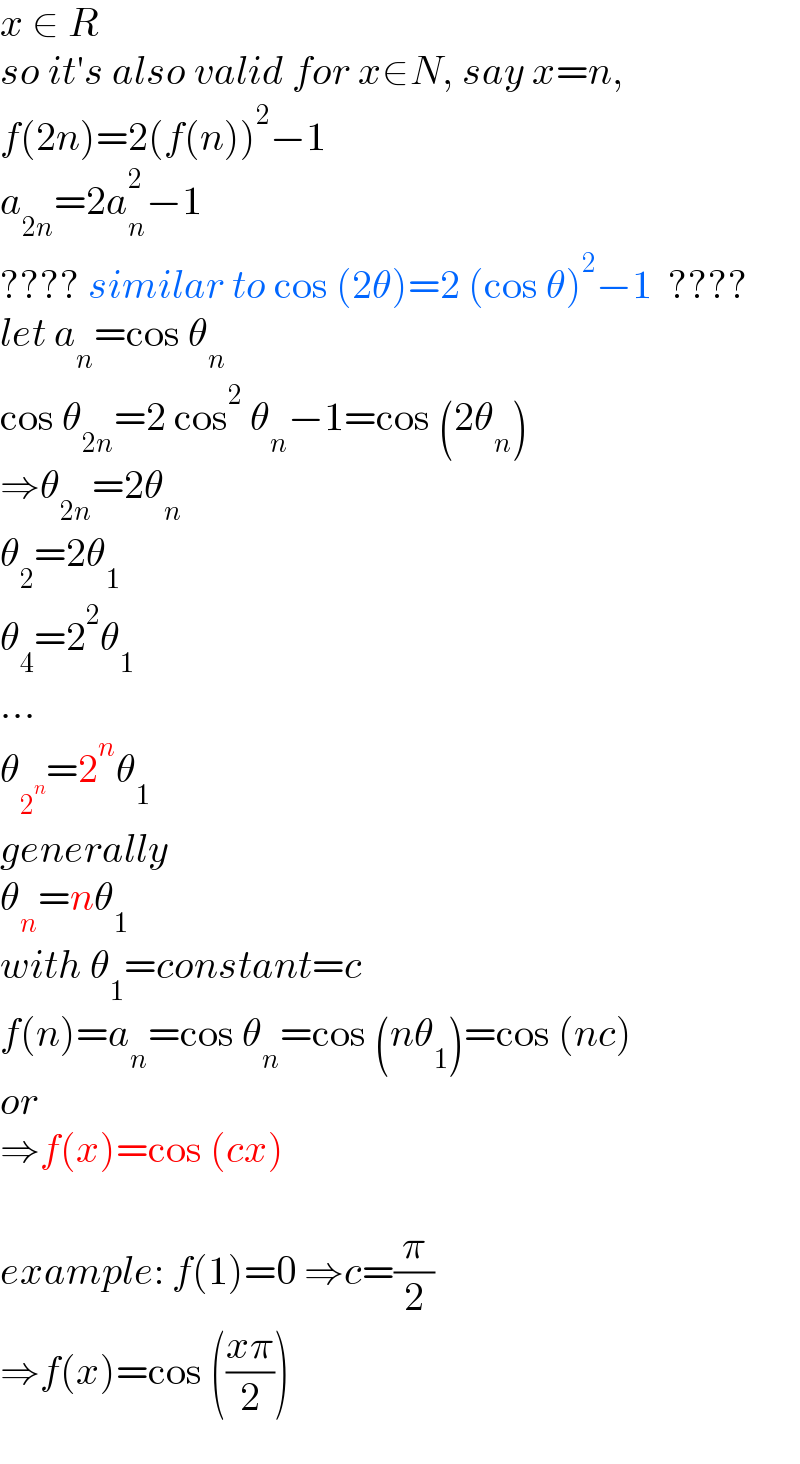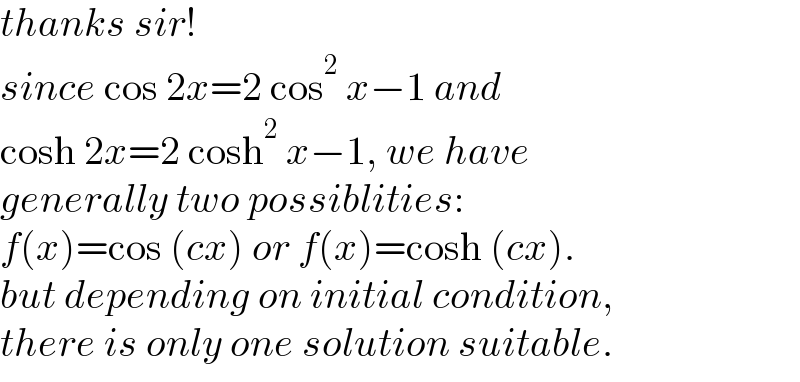
Question and Answers Forum
Question Number 163942 by Rasheed.Sindhi last updated on 12/Jan/22
![f(2x)−2[ f(x) ]^2 +1=0 f(x)=?](Q163942.png)
Answered by mr W last updated on 12/Jan/22

Commented by Rasheed.Sindhi last updated on 13/Jan/22

Commented by Rasheed.Sindhi last updated on 13/Jan/22

Commented by mr W last updated on 13/Jan/22

Commented by Rasheed.Sindhi last updated on 13/Jan/22

